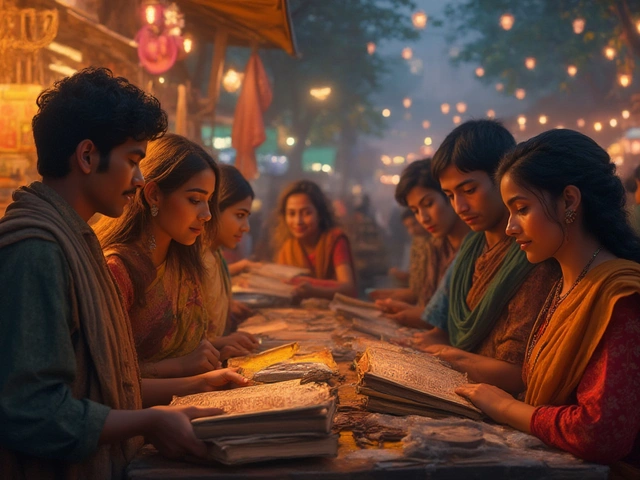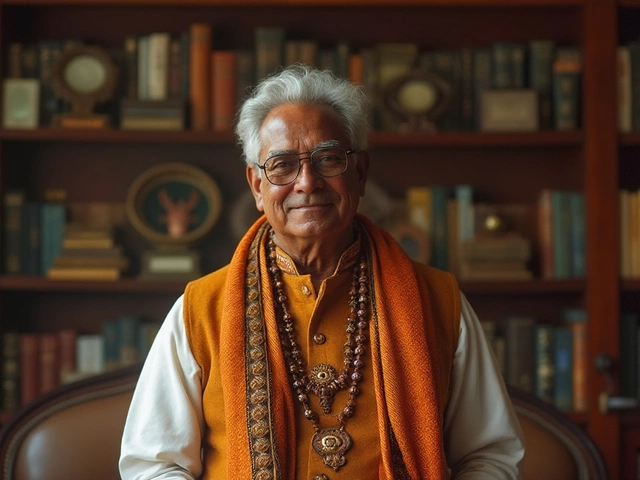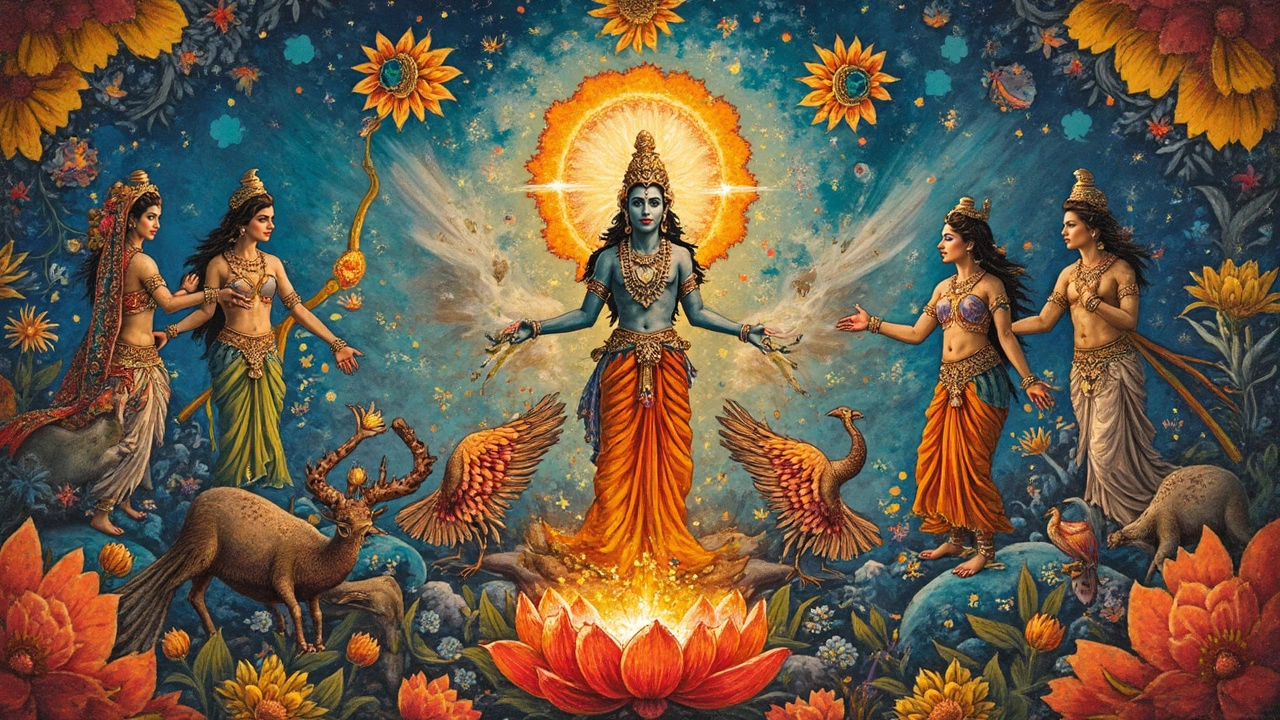
The question of whether a god exists has been around forever, almost as if we're wired to wonder about it. We see this question pop up throughout history in all sorts of fascinating stories and legends. But what if we look at it through the lens of historical fiction? You know, those novels and tales that take bits of history, wrap them up in a compelling narrative, and make us feel connected to the past. It’s a cool way to relive those moments and maybe catch a glimpse of how people back then thought about the divine.
Think about it: civilizations like the ancient Egyptians and Greeks built larger-than-life myths around their gods, leaving behind a treasure trove of tales. They tried to make sense of the world around them and their place in it, just as we do today. By exploring these old beliefs through historical fiction, we're not just reading stories; we're tapping into the lived experiences and understandings of people from way back when. Their gods shaped their world just as our beliefs shape ours now.
- Tracing Ancient Beliefs
- Medieval Narratives and Religion
- The Enlightenment Influence
- Modern Era: Changing Perspectives
- Fiction's Role in Exploring Divinity
Tracing Ancient Beliefs
When we dive into ancient times, civilizations like the Egyptians, Greeks, and Mesopotamians had deep-rooted beliefs about gods that shaped their cultures and daily lives. These folks didn't just believe in God or gods—they lived their beliefs, crafting stories and myths that still mesmerize us today.
The Egyptians had a whole pantheon of gods, each with specific roles. Ra, the sun god, was seen as the creator of life. His daily journey across the sky was a huge part of their understanding of the world. They built pyramids, not merely as tombs, but as spiritual gateways to ensure a safe journey to the afterlife.
The Greeks did something similar but had their unique twist. They created rich narratives about gods who were just as flawed and fickle as humans. Think Zeus, always getting into trouble with Hera over yet another escapade. Their tales were not just entertainment but explanations for everything from natural phenomena to human emotions.
In Mesopotamia, the belief in gods was intertwined with their rulers. Kings were seen as chosen by the gods, and their rule was a reflection of divine will. A cool note here is their creation epic, the Enuma Elish, which talks about how Marduk came to order from chaos. It’s pretty wild stuff that showcases their view of the universe.
"The myths of a people are a refuge of its earliest religious principles," remarked Terje Stordalen from the University of Oslo. This quote captures how stories and myths carried the core of ancient belief systems.
Ancient civilizations were always trying to make sense of the world, and their way of explaining it through gods and mythology laid the groundwork for how religion has evolved over time. Using historical fiction, we can relive these intricate beliefs and see how they’ve echoed through the ages, shaping how modern societies view the idea of God and divine.
Medieval Narratives and Religion
During the medieval era, talking about God was like discussing the weather—everybody had an opinion, and it was everywhere. This period was loaded with colorful tales and religious narratives that influenced daily life in powerful ways. Folks didn’t just hear stories about divine figures; they lived them through art, music, and even their laws.
The Middle Ages gave us the epic tales of King Arthur and his knights. These stories weren’t just about chivalry and quests; they were infused with religious significance. The Holy Grail quest is a perfect example. It wasn’t just a fancy cup to them; it was this miraculous object that represented divine grace and salvation. Through these stories, people found not only entertainment but also moral lessons and a spiritual compass.
Moreover, the Church had a huge influence, shaping how belief systems were communicated. Gothic cathedrals themselves spoke volumes through their designs. With their towering spires and intricate stained glass, these cathedrals were like giant storybooks, visually retelling biblical stories to a largely illiterate population.
Using parish plays and morality plays, the Church reached folks directly, teaching lessons about right and wrong. These plays often portrayed allegories between good and evil with God and the devil as characters shaping human fate. Imagine watching one and realizing: these stories weren’t just drama; they were life lessons wrapped up in captivating narratives.
Around this time, saints’ lives were also big hits. Tales of their miraculous deeds and faith-inspired throngs of believers and were written and passed down, inspiring devotion and sometimes shaping societal norms. One medieval classic that thrived is "The Canterbury Tales" by Chaucer, which gives us snippets of religious opinions, beliefs, and ironies prevalent back then.
This entire period was like a boiling pot of religion-driven stories influencing every level of society—from peasants till nobles. Their religious narratives still echo today, reminding us of how our past has shaped various worldviews around God and faith.
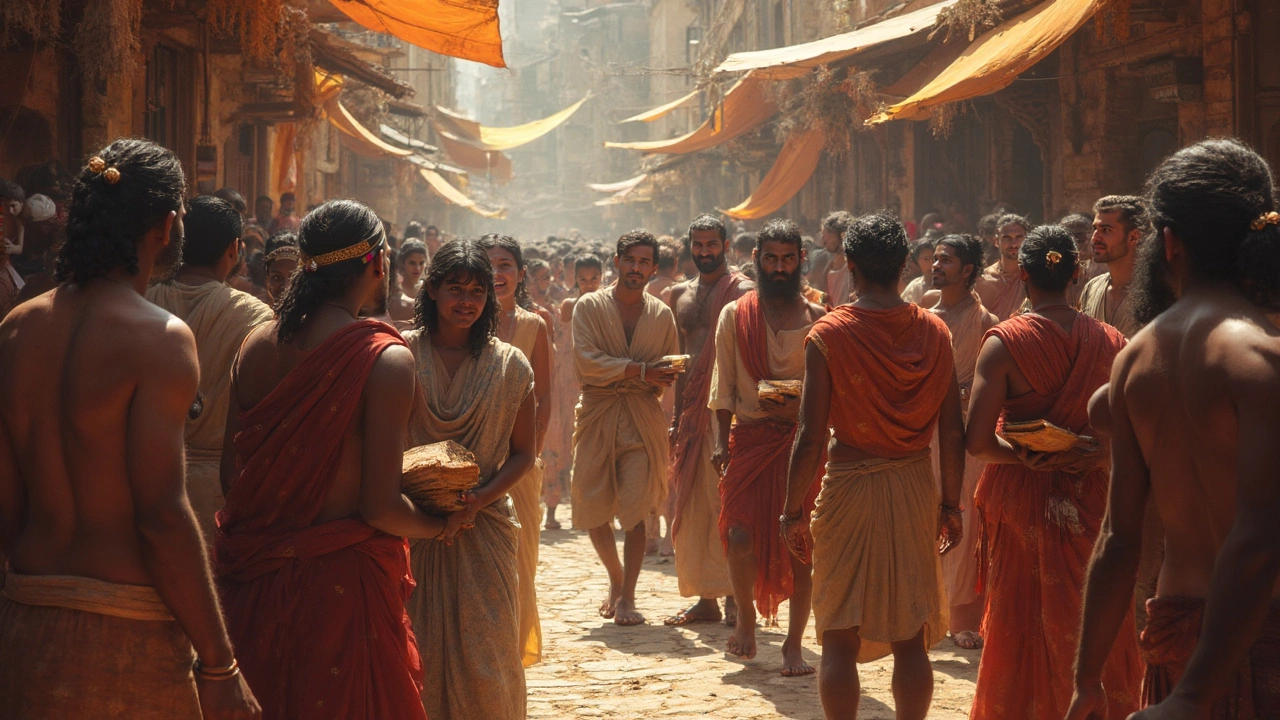
The Enlightenment Influence
Let’s talk about the Enlightenment, that period in the 17th and 18th centuries when folks began to shake things up, questioning long-held beliefs, including the existence of a God. This era is like the rock concert of intellectual history—challenging, rebellious, and full of new ideas that still resonate today.
The Enlightenment, with its emphasis on reason and individualism, poked holes in traditional religious practices. Thinkers like Voltaire and John Locke questioned the intertwining of church and state, advocating for the separation as a path towards more personal freedom and democracy. They weren't saying beliefs were irrelevant but rather encouraging a more personal exploration of faith beyond the dictates of established religions.
Voltaire, for instance, famously critiqued organized religion, suggesting that while the divine might exist, humans should focus more on reason and less on dogma. It's like he was saying, "Yeah, there might be a God, but let's also trust our brains to figure stuff out.” His works, with their sarcastic wit, helped spread these ideas far and wide, getting people to think critically about their beliefs.
This era also saw the rise of deism, a kind of middle ground where people acknowledged a creator but doubted that this deity intervenes in human affairs. It was a big deal because it shifted the divine from an active day-to-day participant in people's lives to more of a watchful observer, setting the universe in motion but then letting it run on its own.
| Significant Figures | Concepts Advocated |
|---|---|
| Voltaire | Critique of Church Authority |
| John Locke | Religious Tolerance |
| Immanuel Kant | Emphasis on Reason |
This push towards reason sparked massive debates and eventually influenced how future generations viewed religion and belief systems. So, when you pick up a piece of historical fiction from this era that tackles questions about the divine, remember, it’s not just a story; it’s a reflection of the time when people were breaking free from convention, using brains as much as books to find answers.
Modern Era: Changing Perspectives
The modern era's take on the existence of God is like a kaleidoscope, constantly shifting with fresh insights and discoveries. It's been this period where science and technology ramped up, challenging age-old beliefs left and right. Suddenly, with the Earth no longer viewed as the center of the universe after the Copernican revolution, people's faith landscapes started to change too.
Throughout the 20th and into the 21st century, the rise of secularism has been one of the most notable shifts. More people started identifying as 'nones,' meaning they don't affiliate with any religion at all. This isn't to say belief in gods has vanished. Far from it. It’s just that there’s more room for everyone’s views at the table now.
With access to a world of information at our fingertips, thanks to the internet, people are forming their own conclusions. Many remain firm in their faith, while others explore spirituality outside conventional religion. Human history shows a fascinating blend of sticking with tradition and breaking new ground.
Pop culture, through its movies, books, and music, has played a significant role in reflecting and shaping these perspectives. Works of historical fiction that tackle religious themes continue to intrigue us, often sparking deeper thought or debate around the divine. It’s like a giant melting pot where old beliefs and new ideas mix.
Interestingly, the relationship between religion and politics has also seen its ups and downs. Some societies have moved towards a clearer division between church and state, creating environments where people can freely choose their beliefs.
Overall, the modern era hasn't settled the question of a god's existence, but it has broadened the conversation. It’s a journey of exploration and understanding, each person's path uniquely theirs.
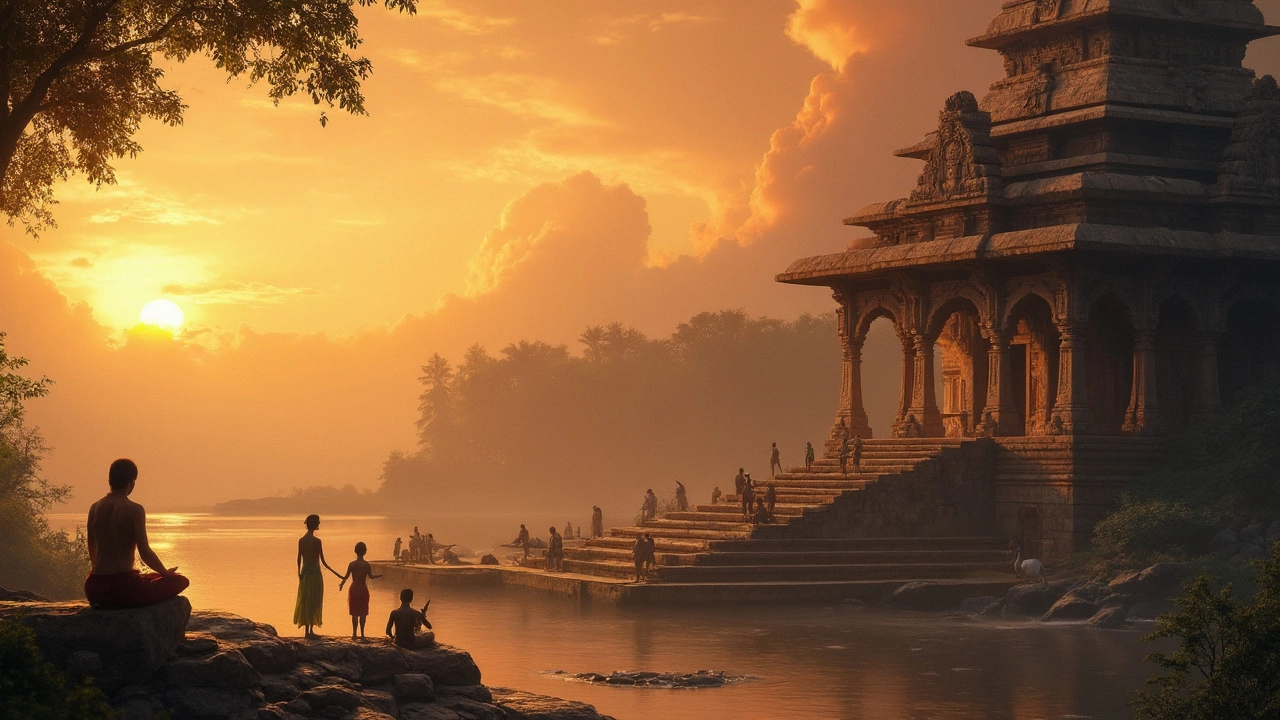
Fiction's Role in Exploring Divinity
Ever noticed how fiction makes the mysterious concept of God a bit more graspable? By mixing imagination with historical contexts, authors have this knack for giving life to age-old beliefs in a way that feels relatable. Through storytelling, we get to dive deep into what these beliefs meant to people during different eras. It’s almost like time-traveling across epochs where gods walked among humans, at least in the minds of those who believed.
Consider Dan Brown's 'The Da Vinci Code'—it stirred quite the debate by intertwining modern conspiracy with ancient religious symbology. It's a wild ride through art, history, and the secretive layers of belief systems. Such tales don't just entertain; they prompt us to question the nature of faith, coincidence, and evidence that permeates through history.
Historical fiction isn't just about dusty old gods either. Contemporary spins, like Neil Gaiman’s 'American Gods,' press these divine figures into our modern world, making them face everyday challenges. It asks: if gods existed among us, how would they survive when belief, their lifeline, dwindles?
Through the realm of fiction, the abstract ideas about divinity become tangible. These stories encourage readers to reflect on their personal beliefs and how these beliefs shape societies. They remind us that whether or not a god exists might be less important than how these concepts influence human behavior and culture. At the end of the day, fiction helps us peek into the spiritual life tapestry woven over countless generations, showing us that the quest for divine understanding is a core part of what makes us human.
